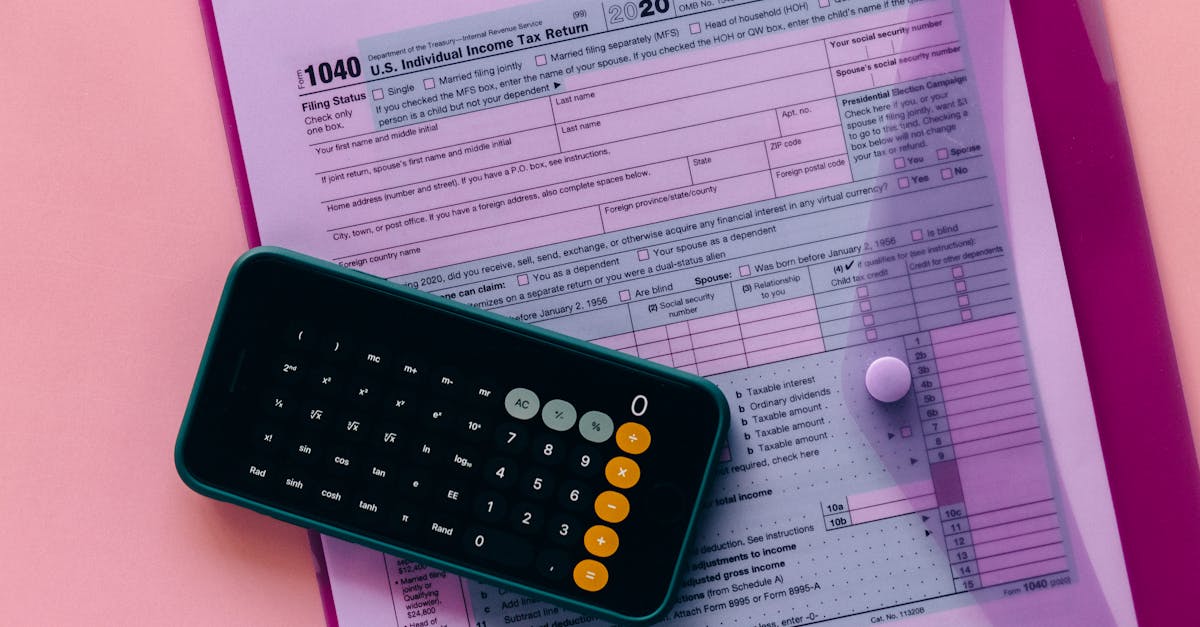
Explore the essentials of crypto taxation in Canada with our detailed guide. Delve into CRA regulations, crypto asset types, minimizing…
The Canadian Revenue Agency (CRA) has been keeping up with our industry but the crypto market moves at hyper speed and it becomes difficult to fully understand the tax implications of your trades, mining, ICOs, and everything in between. My aim is to provide an in-depth summary of our responsibilities as players in the space, and help Canadians be tax compliant. The fear of being uncompliant is one shared by many in the space and as a finance profession myself and the owner of a crypto corporation I can tell you first hand that it is not due to ignorance! So, if you are scrambling to get your taxes completed and need to brush up on your understanding of a Canadian taxpayer in the crypto space, buckle up!
Yes! CRA has the ability to track transactions and can request additional information to assist in assessing your taxable position. CRA also requires all transactions on exchanges exceeding $10,000 to be reported. What does CRA consider a “Crypto-Asset” If it walks like a duck, quacks like a duck, it is a duck! I have been in the crypto space through many evolutions of the market and if you are investing in a product that is supported by blockchain technology it is almost always qualified as a crypto asset under the CRA’s definition and subject to Crypto Asset Taxation. Non-fungible tokens (NFTs) were a good case of the asset test. Is an NFT art or a Crypto Asset? I have heard many arguments for the case that an NFT should be considered art and be taxed accordingly. CRA has clearly identified that NFTs are a crypto asset. It is important to note that as crypto is evolving so will the definition of crypto assets. The specific tax treatment of any asset can vary based on its use and the user’s intentions.
Incorporating your Crypto Trading business
A major advantage that I feel that is often overlook is incorporating your crypto trading corporation. With companies like ownr you can do this without a lawyer and begin taking advantage of the benefits that incorporating offers Canadian residents: Small business deduction, deferring personal taxation, and limited liability. See incorporation for more information.
Affiliate Link will come
Link to incorporation page
Small Business Deduction (SBD)
Incorporating your crypto trading business as a Canadian Controlled Private Corporation (CCPC) enables access to the Small Business Deduction (SBD), significantly reducing the federal corporate income tax rate on the first $500,000 of active business income to 9%. This significantly lower than reporting as a sole proprietorship, where all business income is taxed at the individual’s personal income tax rates. These rates can be substantially higher, particularly for individuals in higher income brackets. See here for qualifying requirements for the SBD
Link to incorporation Page
While incorporation offers advantages, it also comes with more complex reporting requirements and the need for diligent corporate governance.
Conclusion
Navigating the ever-evolving landscape of cryptocurrency taxation in Canada demands diligence, understanding, and sometimes, professional guidance. CRA is watching and adapting to our fast paced world. Recognizing the distinction between being an investor or a trader, understanding the implications of capital gains versus business income, and the crucial role of meticulous record-keeping are foundational steps towards ensuring tax compliance.
Incorporating your crypto trading is not just as a strategy for tax efficiency but as a pivotal move for safeguarding your financial future, leveraging the benefits of the Small Business Deduction, and embracing the protective layer of limited liability. While the crypto world thrives on speed and innovation, the principles of tax compliance remain grounded in precision and foresight.
I encourage you, whether you’re a seasoned trader or new to the crypto space, to view tax compliance not as a hurdle but as a vital component of your investment strategy. Engaging with professional tax advisors, utilizing robust crypto tax software, and staying up to date on the CRA’s guidelines are practices that can enhance your financial well-being and ensure you remain on the right side of compliance.
As we look forward to more clarity and guidance from regulatory bodies like the CRA, let’s approach crypto taxation with the seriousness it demands. After all, in the rapidly expanding universe of cryptocurrency, being informed, compliant, and strategic can transform taxation from a daunting obligation into an opportunity for growth and stability.
Remember, the journey through crypto taxation is one we’re all navigating together. By staying informed, prepared, and proactive, we can embrace the future of finance with confidence and compliance.
Ready to take the next step? Consider reviewing your crypto transactions today, explore incorporating your business, or reach out to a professional tax advisor to ensure you’re positioned for success in the crypto market. Remember, the journey through crypto taxation is one we’re all navigating together. By staying informed, prepared, and proactive, we can embrace the future of finance with confidence and compliance.
Ready to take the next step? Consider reviewing your crypto transactions today, explore incorporating your business, or reach out to a professional tax advisor to ensure you’re positioned for success in the crypto market. Remember, the journey through crypto taxation is one we’re all navigating together. By staying informed, prepared, and proactive, we can embrace the future of finance with confidence and compliance.
Incorporating Crypto Business Canada
Incorporating your trading business should be a topic considered by all crypto enthusiasts. If your business activities warrant incorporating and qualify to become a Canadian Controlled Private Corporation (CCPC) there are many benefits such as: Small Business Deduction (SBD), deferred personal taxation, and limited liability.
Navigating the ever-evolving landscape of cryptocurrency taxation in Canada demands diligence, understanding, and sometimes, professional guidance. CRA is watching and adapting to our fast paced world. Recognizing the distinction between being an investor or a trader, understanding the implications of capital gains versus business income, and the crucial role of meticulous record-keeping are foundational steps towards ensuring tax compliance.
I encourage you, whether you’re a seasoned trader or new to the crypto space, to view tax compliance not as a hurdle but as a vital component of your investment strategy. Engaging with professional tax advisors, utilizing robust crypto tax software, and staying up to date on the CRA’s guidelines are practices that can enhance your financial well-being and ensure you remain on the right side of compliance.
As we look forward to more clarity and guidance from regulatory bodies like the CRA, let’s approach crypto taxation with the seriousness it demands. After all, in the rapidly expanding universe of cryptocurrency, being informed, compliant, and strategic can transform taxation from a daunting obligation into an opportunity for growth and stability.
Remember, the journey through crypto taxation is one we’re all navigating together. By staying informed, prepared, and proactive, we can embrace the future of finance with confidence and compliance.
Let’s review some crucial steps to getting ready to file!

Explore the essentials of crypto taxation in Canada with our detailed guide. Delve into CRA regulations, crypto asset types, minimizing…
Incorporating your crypto trading business as a Canadian Controlled Private Corporation (CCPC) enables access to the Small Business Deduction (SBD), significantly reducing the federal corporate income tax rate on the first $500,000 of active business income to 9%. This significantly lower than reporting as a sole proprietorship, where all business income is taxed at the individual's personal income tax rates. These rates can be substantially higher, particularly for individuals in higher income brackets. See here for qualifying requirements for the SBD
Link to incorporation Page
While incorporation offers advantages, it also comes with more complex reporting requirements and the need for diligent corporate governance.
Incorporating your Crypto Trading business
A major advantage that I feel that is often overlook is incorporating your crypto trading corporation. With companies like ownr you can do this without a lawyer and begin taking advantage of the benefits that incorporating offers Canadian residents: Small business deduction, deferring personal taxation, and limited liability. See incorporation for more information.
Affiliate Link will come
Link to incorporation page
Whether you’re a seasoned crypto trader or just dipping your toes, this guide is designed to walk you through everything you need to know to file your crypto taxes correctly and confidently in Canada. There is a lot of information out there, and it is important that as a Canadian, you look to CRA and Canadian regulation when investigating how to compile your taxes. The CRA website contains a lot of helpful material, but it is anything but a light read. I hope that the following information is helpful, but please contact your tax professional before making any changes to your tax prep methods.
Understanding what qualifies as a crypto asset according to the CRA is crucial for anyone in this space, whether you’re a casual enthusiast or a serious investor. Here’s a breakdown:
Definition and Core Concepts:
Types of Crypto Assets:
Tax Implications:
Record-Keeping is Key:
In the eyes of CRA income from crypto should either be reported as capital gains or business income. A capital gain receives preferential tax treatment with only 1/2 of the gain being taxable, while business income is fully taxed at your marginal rate.
In order for crypto income to qualify for capital gain treatment you need to have purchased the asset with a long term focus, and aim to hold the asset to generate wealth, not short term gain. I have summarized some of these criteria to help you determine your Crypto Persona. I recommend looking at these holistically and decide on your overall persona, and then review specific assets your hold to see if there are exceptions:
If you identify more as a trader we will have a lot of tips and tricks to ensure that you are managing your business activities most effectively to minimize your tax exposure to CRA.
If you identify as an investor then please keep HODL! We will discuss ways to effectively manage your tax liabilities when you decide to sell.

Every transaction you make in the crypto that results in a gain or loss needs to be reported.
Investors: If your activities classify you as an investor, you’ll report qualifying transactions resulting in gains or losses as capital gains. This means you’re only taxed on 50% of your gains, which can significantly reduce your tax liability. When reporting, ensure each transaction’s purchase and sale price is recorded, along with dates and the type of crypto.
Traders: As a trader, your crypto transactions are part of your business income. This requires you to report all profits and losses as you would with any other business activity. Traders can deduct business expenses related to their trading activities, which can help reduce taxable income. For traders, it’s crucial to keep detailed records of the volume of trades, the time spent trading, and any related expenses.
Transaction Types to Report:
Trading Crypto to Fiat: Whenever you convert cryptocurrencies like Bitcoin or Ethereum into fiat currencies such as USD or CAD, you need to record the transaction at the fair market value in CAD at the time of the trade.
Crypto to Crypto Trades: Trading one cryptocurrency for another is considered a disposition of the first asset and an acquisition of the second. Each trade needs to be recorded at the market value in CAD at the time of the transaction, calculating any capital gains or losses.
Purchases Made with Crypto: Using cryptocurrency to purchase goods or services is a taxable event. The CRA treats it as if you first sold your crypto to convert it to fiat, and then used the fiat to make the purchase. Record the value of the crypto in CAD at the time of the transaction.
Earning Crypto as Income: This includes mining, staking, or receiving cryptocurrency as payment for services rendered. The value of the cryptocurrency in CAD at the time it is received should be recorded as income.
Gifts and Donations: If you gift or donate cryptocurrency, you must record the market value of the crypto in CAD at the time of the gift or donation. Different rules apply to gifts versus donations, especially regarding potential capital gains and eligibility for tax deductions.
Airdrops and Forks: When you receive new tokens through airdrops or forks, you might need to report these as income at their fair market value in CAD at the time they are received.
Diligent Record-Keeping Is Key:
Pro Tips for Seamless Reporting:
Accurate tax reporting is essential for both peace of mind and legal compliance. By thoroughly understanding and implementing robust reporting practices, you can navigate the complexities of crypto taxes confidently. This ensures that you not only meet your legal obligations but also maximize your potential tax advantages.
Whether you’re an investor holding onto digital assets for potential long-term growth, or a trader making waves with frequent buys and sells, understanding how to calculate your gains and losses is crucial for staying afloat come tax time.
For the Long Haul – Investors:
This favorable treatment encourages investing in cryptocurrencies over the long term, aligning crypto with other investment assets like stocks or real estate.
Fast Paced – Traders: For traders, the approach is more akin to running a business:
Why It Matters:
Tools to Help:
Remember, whether you’re in it for quick profits or the potential long-term benefits, knowing the ropes of how your activities are taxed is crucial. Take advantage of our detailed guide and handy infographic to steer through the complexities of crypto taxation with confidence. This isn’t just about keeping the taxman at bay—it’s about ensuring you’re making the most out of your crypto adventures!
Ready to dive deeper? Check out the full article linked on the same page for a comprehensive breakdown of everything you need to know about crypto taxes.

Discover the essentials of calculating taxable gains and losses for crypto transactions in Canada, covering CRA guidelines, record-keeping, the distinction…

Discover the best crypto tax software in Canada with our expert review. Find user-friendly interfaces, accurate tracking, and seamless CRA…

Explore whether you need an accountant for your crypto taxes in Canada and learn how to find an expert who…
Cryptocurrencies is exhilarating! From the rush of a Bitcoin surge to the thrill of an unexpected altcoin find, it’s a dynamic rollercoaster. But when tax season rolls around, that excitement can quickly turn into a puzzling headache. Crypto taxes aren’t just complex; they’re a whole new language for many.
Enter the Tax Guru: This is where a tax professional who specializes in cryptocurrency becomes your new best friend. Think of them as your guide through the dense forest of numbers and rules. Here’s what they bring to your crypto journey:
Personalized Tax Map: Crypto transactions are unique, and cookie-cutter advice won’t always cut it. A tax pro can offer tailored guidance that considers your specific situation—whether you’re a casual trader, a serious investor, or somewhere in between.
Decoding the Tax Code: Tax laws can feel like they’re written in an alien script, especially when it comes to something as novel as crypto. A specialist knows the ins and outs of these laws and can help you understand what moves are smart and what could land you in hot water.
Strategic Planning: Beyond just keeping you compliant, a tax professional can provide strategies to minimize your liabilities and maximize potential returns. They can advise on the best times to sell, how to handle losses, and ways to optimize your portfolio for tax purposes.
Audit Armor: Yes, the dreaded A-word. If the tax authorities ever knock on your door, having a tax expert by your side can be invaluable. They can defend your filings and represent you, ensuring that your adventures in crypto remain as stress-free as possible.
Making It Accessible: A tax professional who specializes in cryptocurrency can translate complex tax jargon into clear, understandable language. This isn’t just about filing your taxes correctly—it’s about empowering you with knowledge to navigate future tax seasons with confidence.
Whether you’re mining, staking, trading, or just HODLing, investing in professional tax guidance is like choosing a premium safety gear for your crypto journey—it protects you, enhances your performance, and ensures you enjoy the ride without nasty surprises.
So, while the crypto markets continue to surprise us, your tax situation shouldn’t. Reach out to a seasoned crypto tax professional and turn what could be a taxing experience into a rewarding one. This isn’t just about getting through tax season; it’s about setting up for success in the exciting world of cryptocurrencies.

Discover the intricacies of CoinLedger for crypto tax reporting in Canada with our detailed review. Weigh its efficiency, multi-platform support,…

Explore the reliability of Zenledger Tax Calculator for Canada's crypto market through user experiences and expert insights on accuracy, convenience,…
For enthusiasts who thrive on the pulse of this dynamic market, keeping up with taxable events from trades to token swaps across multiple platforms is a nightmare. This is where crypto tax software becomes not just helpful, but essential.
Seamless Transaction Tracking: Imagine having a personal assistant dedicated solely to keeping meticulous records of your numerous crypto transactions. That’s essentially what a good crypto tax software does. It integrates with multiple exchanges and wallets, pulling in all your transaction data without you having to manually log each trade. This means every buy, sell, exchange, and even crypto received as income is automatically tracked.
Accuracy Is Key: With the CRA (Canada Revenue Agency) keeping a closer eye on crypto transactions, accuracy in reporting is more critical than ever. Crypto tax software calculates gains, losses, and the fair market value in CAD of each transaction at the time it occurs, ensuring precision that manual calculations can struggle to match. This precision is crucial not only for compliance but also for optimizing your tax liabilities.
Stay Updated on Tax Laws: Crypto tax laws can change rapidly, and keeping up can feel like a full-time job. Good crypto tax software stays on top of these changes for you. It updates its algorithms accordingly, so you’re always compliant without having to pore over the latest tax bulletins yourself.
Audit Readiness: If the CRA comes knocking, having a comprehensive, clear record of all your transactions, as well as your calculated gains and losses, will be invaluable. Crypto tax software provides detailed reports that are invaluable during audits, showcasing your diligence in maintaining accurate records.
Financial Strategy Optimization: Beyond mere compliance, using crypto tax software can actively help optimize your financial strategy. It can help identify potential tax-saving opportunities such as loss harvesting, where you sell assets at a loss to offset gains, thus reducing your taxable income.
Here’s the Bottom Line: In the fast-evolving world of cryptocurrency, where transactions are digital and decentralized, having robust crypto tax software isn’t just about staying compliant—it’s about securing peace of mind. It ensures that as you navigate the exciting yet choppy waters of crypto investing or trading, you do so with a reliable, compliant, and strategic approach to taxes.
Investing in reliable crypto tax software is no longer a luxury—it’s a necessity for anyone serious about their crypto investments and wanting to ensure they meet all regulatory requirements while optimizing their financial outcomes. Remember, while software can handle much of the heavy lifting, consulting with a tax professional can complement the digital precision with personalized advice, ensuring that you’re not just compliant, but savvy in your tax strategy.

Discover how Coinpanda Tax Calculator streamlines crypto tax reporting in Canada with API integration for 500+ exchanges, real-time tracking, and…

Explore Koinly's crypto tax software for Canada: a user-friendly tool with 350+ exchange integrations, DeFi & NFT tracking, ensuring CRA…
© 2024 Created with codix
© 2024 Created with Codix Technology